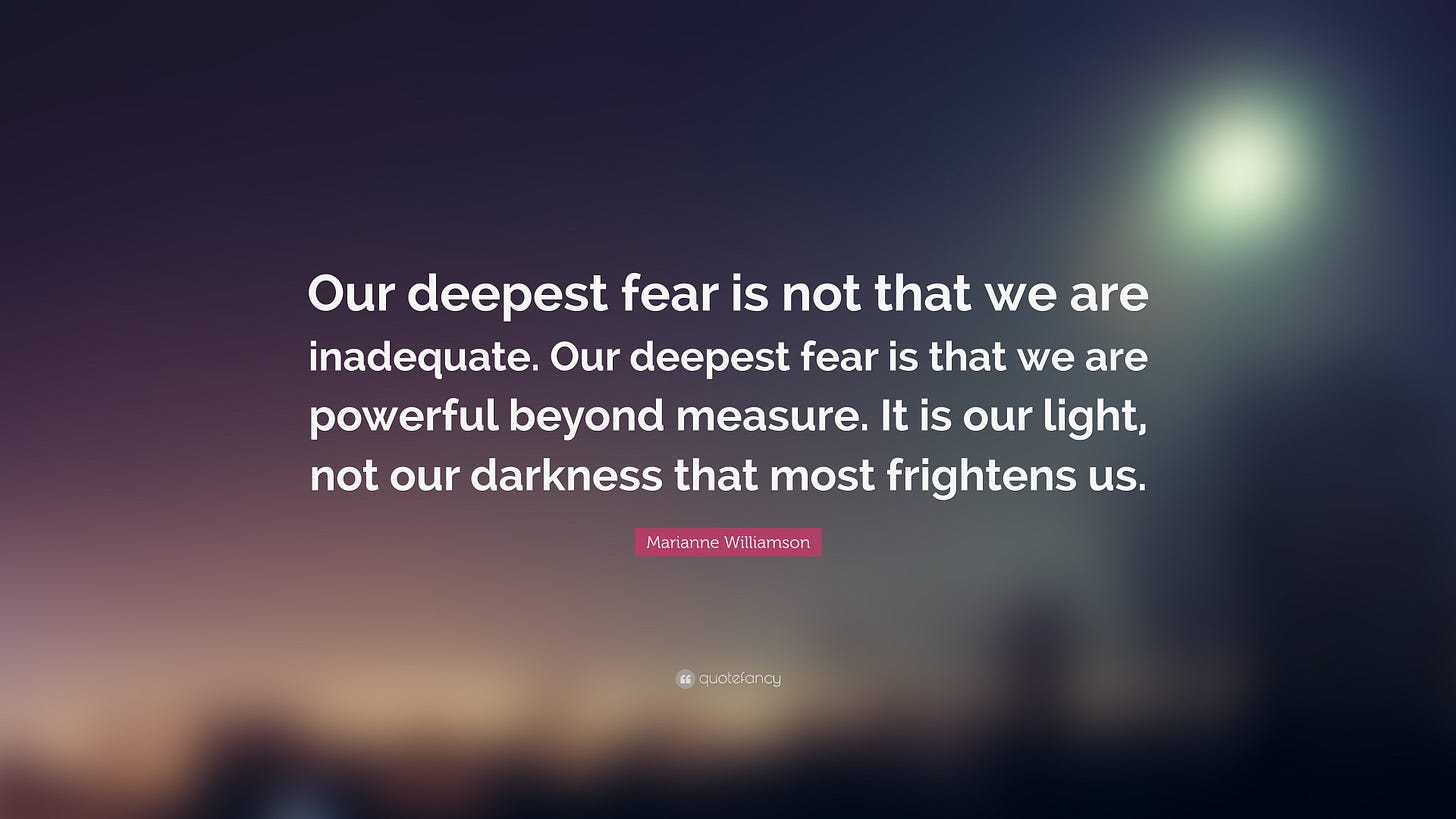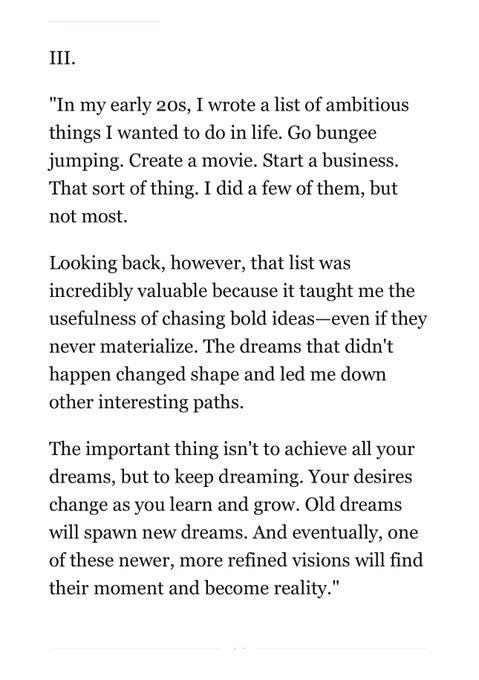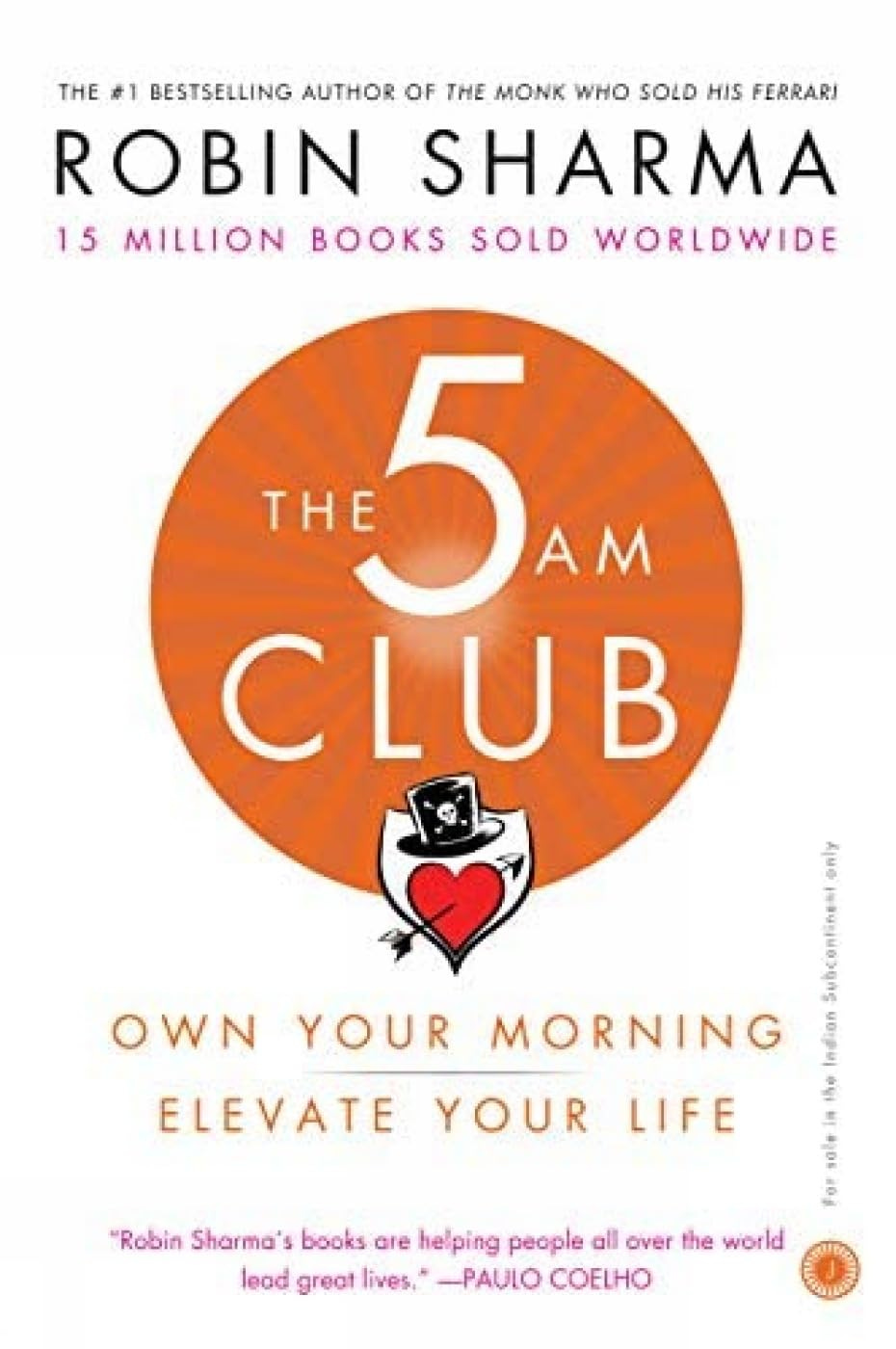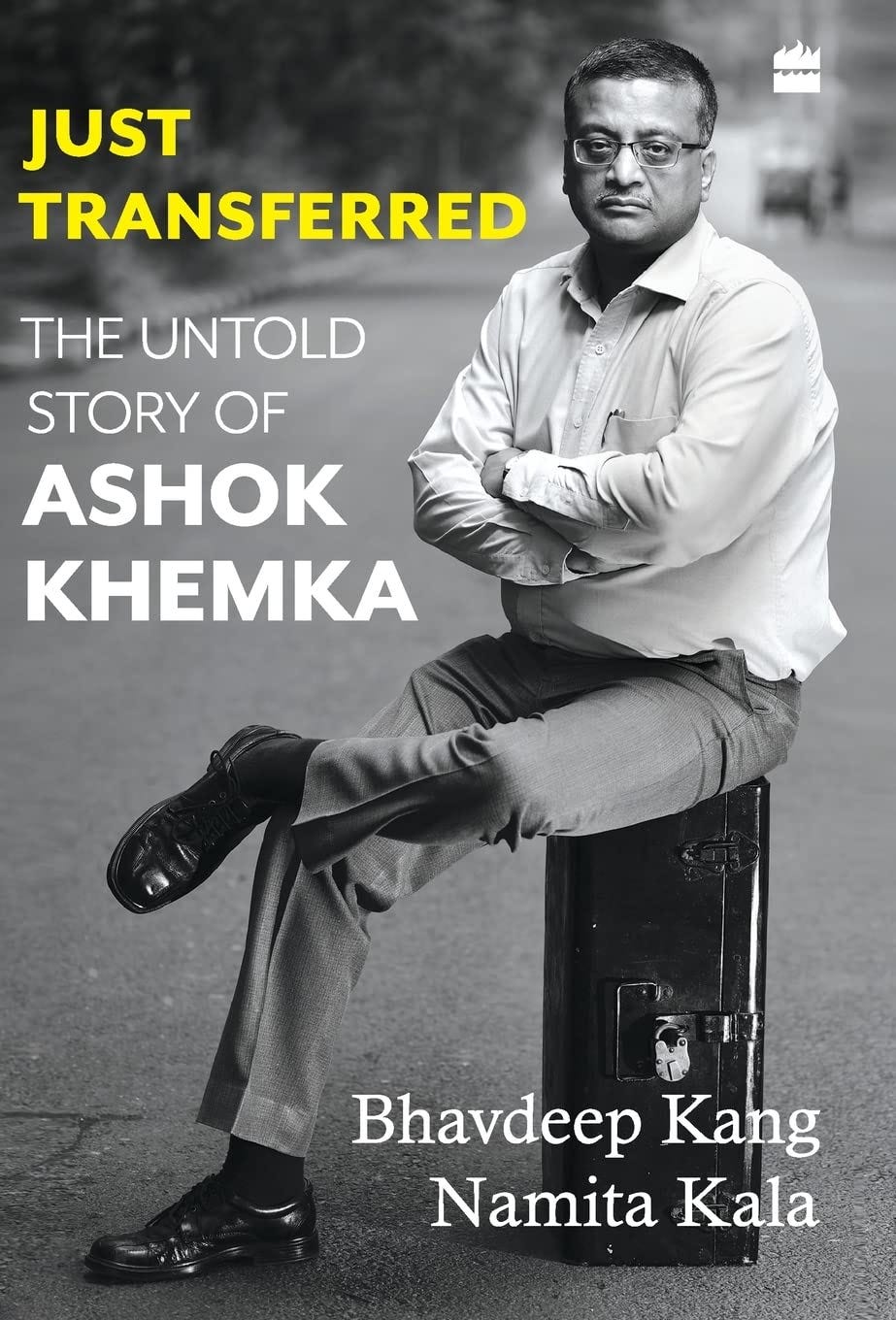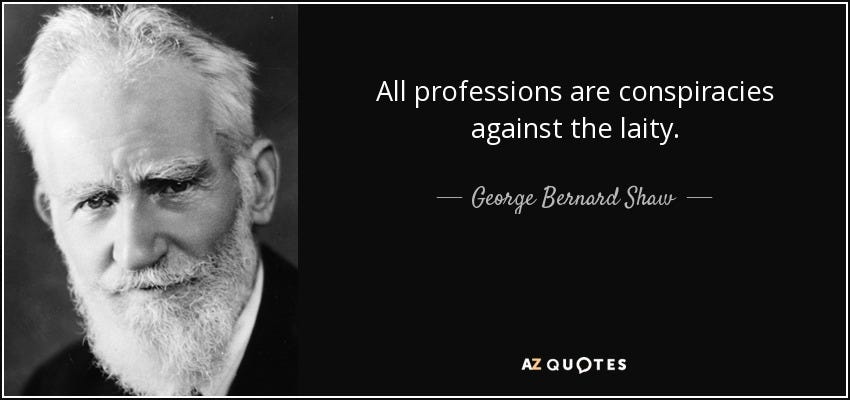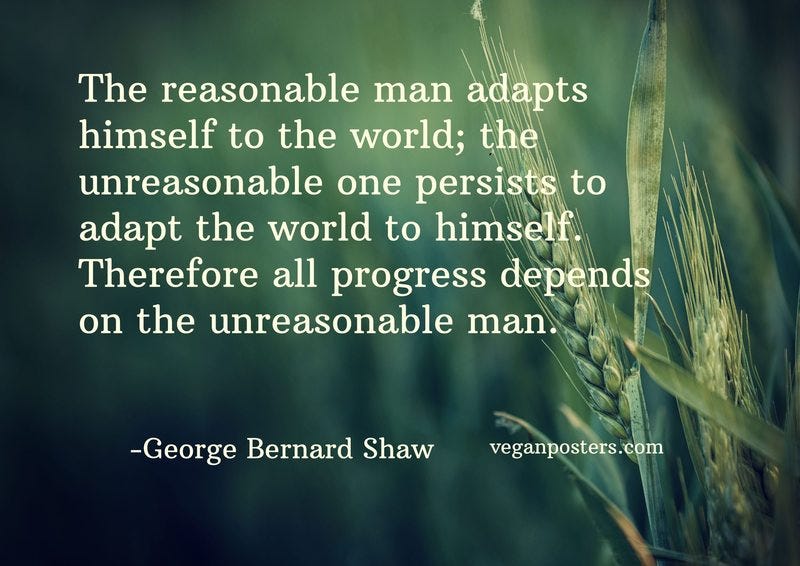#NotJust The Right Candidate
Reflections on why hiring the right candidates is not enough to improve the integrity of the Indian Civil Services
Hello Dear,
Do you know what is one of the first things I did on waking up today morning? It is something which would encourage and inspire me to keep waking up like the way I did today! Yes, after quite a few months, I woke up today with a real sense of excitement and fire inside. With the inspiration to do something meaningful, with my sleep being animated by dreams of plans I wish to pursue when I wake up. To make a difference, irrespective of how small it may turn out to be, and irrespective also of whether I end up making any difference.
The Fear of Dreaming New Dreams
But hey, I think there is a fundamental problem with this very thought - this very fear we entertain, this very disclaimer we add to our aspirations. I mean, why do we often feel forced - perhaps by personal and social conventions of modesty or the need to express what seems like modesty! - to supplement our humble aspirations “to make a difference”, with a clause like “irrespective of how small it may turn out to be, and irrespective also of whether I end up making any difference”?
I am reminded here of a theme which has resonated more than once in this #NotJust newsletter. On the one hand, I believe this need to check even our true aspirations is nothing but the manifestation of a fear lurking deep within us.
“Our deepest fear is not that we are inadequate. Our deepest fear is that we are powerful beyond measure. It is our light, not our darkness that most frightens us. We ask ourselves, 'Who am I to be brilliant, gorgeous, talented, fabulous?' Actually, who are you not to be? You are a child of God. Your playing small does not serve the world. There is nothing enlightened about shrinking so that other people won't feel insecure around you. We are all meant to shine, as children do. We were born to make manifest the glory of God that is within us. It's not just in some of us; it's in everyone. And as we let our own light shine, we unconsciously give other people permission to do the same. As we are liberated from our own fear, our presence automatically liberates others.” - Marianne Williamson, in A Return to Love
How Our Life Journeys Transform Us
Secondly, I think we forget another important life truth when we express doubts about whether our efforts would lead to the outcomes we aspire for.
In many senses, the journey is the destination. The growth that ensues from the struggle, the striving, the suffering is the more enduring reward.
In other words:
Even if we do not end up “making a difference” or even any difference!, a truthful striving would make a difference to we ourselves, to who we are, to who we become. And often, even and especially without us noticing, an honest effort would have made or will make a difference to at least someone whose life crosses with ours.
I happened to read something on similar lines yesterday, from James Clear.
Coming back to the beginning of this post…what is it which I did early in the morning? It is to order Robin Sharma’s The 5 AM Club, a book which I had recommended in an earlier One Doubt Please post, but not yet read.😊
The Need to Be Born Again
Let me take the liberty to also share with you part of what made me inspired and excited enough to wake up early and spring up from bed for an early bath. Two of my junior colleagues in the Indian Information Service, the civil service to which I belong, are soon going to come on a two-month “on-the-job training” to the office I am now heading, and I was thinking of the various ways in which their creative energies and talent can be utilized. Just thinking of the possibilities has been enough to excite and inspire me. 😊Yes, the opportunity to share and discuss ideas and knowledge - and hopefully some wisdom too 😉- is something which has provided me the greatest satisfaction in life. Boy, should I not do this more!
I think it is way too easy to lose our way in life, especially in the infinitely distractable age of today. All of us need to continually review and recalibrate our path, and discover afresh the fires which ignite the true human being in each one of us.
I think this is part of what Jesus meant when He said that one cannot see the Kingdom of God unless one is born again.
And believe it or not (please do believe), just when I was thinking of and about to pen down this saying, the song I am listening to (in parallel) utters the very same words - of being born again! Of course, there is nothing to be too surprised about this, if we come to believe in the role of fortune and providence in our lives.
And speaking of recalibrating life, let me refer you to a tool which enables us to do just that - Sahil Bloom’s personal review. Well, I am yet to implement his guidance, but I believe writing about this will nudge me to do the same! 🙂
Fine, let us come to what could be called the topic for today…a civil servant has recently been a lot in the news, due to reports of that person’s unbecoming and entitled behaviour upon entering the service. This in turn threw open reports and the possibility that the said officer had also done some fabrication of documents in order to enter the civil service. And the government too has taken some action, with the initiation of an enquiry into the matter.
Now, I was watching the discussions on this issue in the media and among some of my friends… however, I was wondering, as the events were unfolding, as to what is really so unusual about it, as to raise our eyebrows. I mean, what is so exceptional about the case of this officer? Do we mean to say that such civil servants are few and far between, a rarity in “the system”?
Well, this reminds me of an earlier article of this #NotJust newsletter, where we explored the malady and phenomenon of corruption in some depth.
#NotJust "The Corrupt": Are(n't) We All Corrupt?!
Reflections on the eternal malady of corruption; what it means to be corrupt, and how we could hope to combat it.
Here are some observations / questions we have made in the above article.
Even those of us who have not been corrupted could very well be corruptible: we too could become corrupt or fall prey to corruption in future.
Who is not corruptible?
Is everyone corrupt?! All of us? Each one of us?
I think these questions are likely to make most of us both uncomfortable and relieved.
Uncomfortable - in thinking of the instances where we may have failed to do the right thing, to do what we believe in, to stand up for what is right. Our discomfort could arise also from the sobering and humbling fact that we are all of us prone to falling from grace. Which means that:
Eternal vigilance is one price we need to pay to safeguard our integrity.
And why could the above reflections make us relieved? They could be a consoling force, by reminding us of our frailties, in being a little more forgiving of both ourselves and others, and in being a little less self-righteous of whatever good or right things we may have been able to do.
Well, I must admit that, even when I ask “is everyone corrupt?”, I wonder: could not there be exceptions to this rule?
Could not there be people who have always lived by their values - people who have always answered the voice of their conscience?
One trigger for this question is the story of civil servant and IAS officer Ashok Khemka, whose biography I read last week. The book is titled Just Transferred: The Untold Story of Ashok Khemka, written by Namita Kala and Bhavdeep Kang. The book claims that the officer always lived by the voice of his conscience, which has led to fifty-plus transfer postings, as well as other forms of harassment such as vigilance enquiries.
In one sense, it might seem unprobable that there are people who have always lived by their values. In another important sense though, it is foolish to even ask this question, to even doubt that there are not such people. I mean, how could there not be such people?
This is eminently understandable, when we consider how integrity and honesty are kept and lost, built and destroyed. Crucially, dishonesty “expands like an elastic waistband”, leading us to deeper and deeper trenches, from which it becomes more and more difficult to come out.
“It’s like losing your virginity. Once you’ve done it, you can’t go back. If you try, you face a credibility spiral: Were you lying then or are you lying now?”
The above bit is something we discussed in the following One Doubt Please article.
#NotJust This Time: Why We tend to Keep Slipping If We Fail to Live Our Values Even Once
Reflections on values and principles, and why it is easier to live by our principles 100% of the time rather than 99% of the time.
It seems that Clayton Christensen, the late Harvard Business School professor, is another example of someone who chose to live by his principles, no matter the cost. He said that his choices and experiences taught him that:
It is easier to follow one’s principles 100% of the time than 98% of the time.
…as explained in this short video.
The Civil Service Selection Process
The above discussion leads us to the crucial question: how good is our process for selecting candidates into the civil services?
It is my submission that the current scheme and pattern of the civil services examination is not being able to fulfill the objective of selecting suitable officers for the civil services. Here’s what I wrote about this, in a submission I made to a senior officer, in 2016.
The existing scheme falls short in some crucial areas that are the backbone of a modern professional 21st century civil service. The current scheme fails in its ability to identify and accord due merit to the following qualities in the selection process.
Integrity
Commitment to professional excellence
Ability to work together, to collaborate, to build great teams and robust systems
Ability to question respectfully, think, innovate and bring in change
A steadfast desire to change the world, to make a difference
(The full article can be read here: Reviewing the Selection Process for India's Steel Frame)
Could anything possibly be done about this? I mean, what could be a valid and reliable way of selecting candidates with the above traits and dispositions? I confess that I have little to offer in this respect; I realize I need to study the recommendations given by experts such as the various Administrative Reform Commissions, to see what they prescribe in this regard.
The Glory of The Civil Services
I am wondering whether part of the answer could lie in reducing the glory we attach to these “services”, especially to what is classified as the Group A services, and even more particularly, to the “elite services” among the Group A services. But of course, this is not a policy decision; it is more to do with the choices we make as a society, and about how our society distributes status and respect!
Come to think of it, there are indeed steps we can take, even though small ones. For example, the media can choose to not heap undue praise and glory on those who clear the civil services exam. They can choose to focus less on the achievements and personal lives of serving officers and more on what the government is able to achieve as a team. And like the media, each one of us too can choose to do so. To some extent. No?
Redistribution of Power and Responsibility?
A closely linked question is whether there could be a more equitable distribution of powers and responsibilities within each service and among services of the government. Indeed, there can and needs to be. This could be one check against the unbridled exercise of powers, perks, position and privileges, without the need to be accountable for performance.
Here is one article I have written, which touches on the above themes: Has the IAS Failed the Nation? Wrong But Necessary Question!
Being and Becoming in the Civil Service
It is not enough to examine we hire the candidates with the right aspirations, the right skills and even the right attitude and the right character. What is at least equally or perhaps even more important is the environment - “the system” - in which we are immersing these civil servants.
Yes, the culture of our organizations and institutions is paramount. As the saying goes, “culture eats strategy for breakfast” - meaning that even the greatest plan could be laid to waste by a toxic culture.
So, even if every incoming government servant is of impeccable character and competence, of how Ashok Khemka appears to be (from what I have read about him), there is a big possibility that we are setting them up to fail, if the environment, the system, is their enemy, at every step of the way.
Yes, making right choices is supposed to be difficult, but it becomes even more so especially in environments where what is expected, extolled, encouraged and rewarded is nothing but blind allegiance, followership and loyalty to the powers that be. As late leadership researcher Warren Bennis writes in his 1972 essay “When to Resign”:
“Ironically, this pervasive emphasis on harmony does not serve organizations particularly well. Unanimity leads rather quickly to stagnation which, in turn, invites change by nonevolutionary means. The fact that the organizational deviant, the individual who “sees” things differently, may be the institution’s vital and only link with, for lack of a better term, some new, more apt paradigm does not make the organization value him any more. Most organizations would rather risk obsolescence than make room for the nonconformists in their midst. This is most true when such intolerance is most suicidal, that is, when the issues involved are of major importance (or when important people have taken a very strong or a personal position). On matters such as whether to name a new product “Corvair” or “Edsel,” or whether to establish a franchise in Peoria or Oshkosh, dissent is reasonably well tolerated, even welcomed, as a way of insuring that the best of all possible alternatives is finally implemented. But when it comes to war or peace, life or death, growth or organizational stagnation, fighting or withdrawing, reform or status quo—desperately important matters —dissent is typically seen as fearful. Exactly at that point in time when it is most necessary to consider the possible consequences of a wide range of alternatives, public show of consensus becomes an absolute value to be defended no matter what the human cost. Unanimity, or at least its public show, is so valued within the organizational context that it often carries more weight with an individual than his own conscience.” - Warren Bennis
Making Place for The Misfits
Against this backdrop, let me share a short piece of reflection I wrote in the year 2022:
Every system is against itself. That is why we need misfits more than fits. It is the misfits who fit well, who make the system fit the future, and hence the past and present.
Part of essentially the same thought has been said by George Bernard Shaw as well.
In this context, a doubt occurred to me today morning:
Shouldn’t “the system” strive to hire misfits, rather than fits? Should it not encourage the growth and development of the misfits rather than the fits?
Well, the question is paradoxical, I guess, since the very question of the potential value of misfits arises from the character and behaviour of “the system” which tends to make the place inhabitable for misfits.
There is one interesting logical trap involved in this phraseology - of equating the majority with “the system” and the minority to be against it. Could it not be that it is the minority who is “the system” and the majority is who are against it?
Well, let me conclude these reflections with an ode to unreasonableness, again by George Bernard Shaw.
I believe that many civil servants join the government, with an aspiration to make a difference. I think it is important to not lose “the idealism of youth” as we “grow up”, as we gather “more experience”. The “idealism” should indeed be rooted in reality and not in phantasmagorical fantasies, but I hope it could also be simultaneously anchored in a humble aspiration towards how the world can be made a better place - even if a small part of the world, even if to some extent, if nothing else, by being a little more true to our own little yet deep selves. And indeed, this mission could of course be pursued both within and outside the civil / government services.
There we are: let me stop on this hopeful note? And here below is an earlier One Doubt Please article on hope. Thank you for reading!
When Can and Should We Hope? How and Why?
Reflections on the hopefully universal case for hope, at work and in life, through the prism of my relationship with the IIS.



